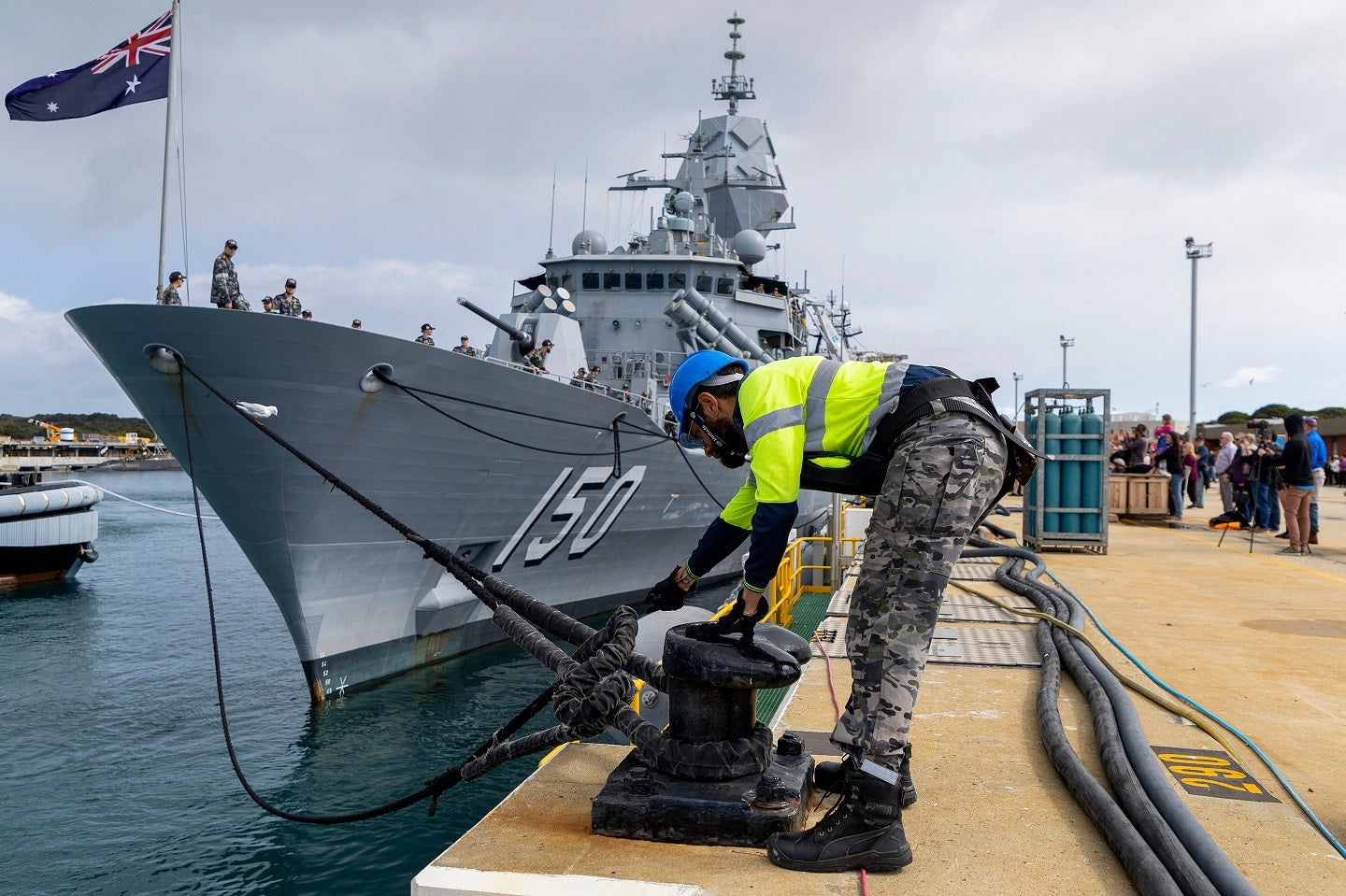
The Royal Australian Navy (RAN) has deployed its frigate (FF) HMAS Anzac to south-east Asia, where the vessel will join an international maritime presence in the region.
The FF will also support Operation Argos, the Australian Defence Force’s (ADF) commitment to enforce United Nations Security Council sanctions on North Korea.

Discover B2B Marketing That Performs
Combine business intelligence and editorial excellence to reach engaged professionals across 36 leading media platforms.
Anzac will participate in the annual Five Power Defence Arrangements exercise, Bersama Shield, which enhances interoperability between Australia, Malaysia, New Zealand, Singapore, and the UK.
Anzac will also participate in Exercise Lumbas, which aims to deepen interoperability between the Philippine Navy and RAN. Now in its 23rd iteration, the exercise is one of the RAN’s longest-running continuous engagements in the region. The deployment will include navy-to-navy engagements while at sea and during port visits.
Indo-Pacific presence
Australian fleet commander, Rear Admiral Chris Smith, said that these routine deployments demonstrated Australia’s commitment to, and engagement with, our partners in the Indo-Pacific region.
“HMAS Anzac’s regional presence deployment is the first for 2023, and part of a robust, decades-long programme of defence [and] international engagement with countries in and around the Indo-Pacific,” Smith stated.

US Tariffs are shifting - will you react or anticipate?
Don’t let policy changes catch you off guard. Stay proactive with real-time data and expert analysis.
By GlobalData“Regional presence deployments strengthen our practical co-operation with regional partners and demonstrate Australia’s commitment to a stable, peaceful, resilient, and prosperous Indo-Pacific.
Australia’s commitment to international collaboration followed trilateral talks between its allies: the US, South Korea, and Japan, on 14 April.
It was “confirmed that each side would remain vigilant and enhance trilateral security cooperation to deter the Democratic People’s Republic of Korea’s (DPRK) nuclear and missile threats and to strengthen peace and stability on the Korean Peninsula and in the Indo-Pacific region.”
It also follows Australia’s development of its own satellite communications system, which was recently contracted out to US based company Lockheed Martin. The system is designed to operate across the Indo-Pacific, which allows the ADF to constantly coordinate regional command and control going forward.





